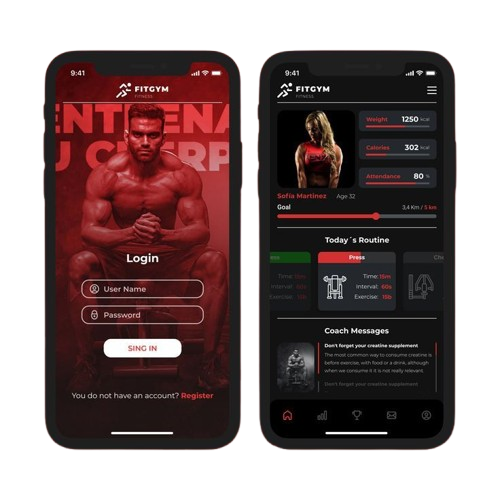
In today’s fast-paced, digitally connected world, health and wellness have taken center stage. More people are prioritizing their physical and mental well-being, and technology is rapidly evolving to support this shift. At the heart of this transformation lies the rise of fitness tracker apps — smart, intuitive tools that empower individuals to take charge of their health. With the global fitness app market projected to reach $14.7 billion by 2026, it’s evident that fitness tracker apps are not just a trend but the future of digital wellness.
The Rise of Fitness Tracker Apps
Fitness tracker apps have evolved far beyond simple step counters. Today’s apps monitor heart rate, sleep quality, stress levels, and calories burned and provide real-time coaching. Thanks to wearable tech integration and AI-powered personalization, these apps deliver data-driven insights that help users make informed decisions about their health.
From weight loss and muscle gain to mental wellness and stress management, fitness apps cater to a wide array of wellness goals. This adaptability is what makes them a vital tool in modern life. As smartphones become more advanced and wearables more affordable, access to these digital wellness tools is expanding across all demographics.
Why Digital Wellness Needs Smart Tracking
Digital wellness refers to the practice of using technology mindfully to support a healthy lifestyle. It’s not just about reducing screen time — it’s about using digital tools to enhance your physical and emotional health. Fitness tracker apps align perfectly with this ethos. They help users:
-
Set and track health goals
-
Monitor progress with data visualizations
-
Stay accountable with reminders and notifications
-
Access workouts, meal plans, and meditation guides
-
Connect with virtual coaches or communities
These apps foster long-term behavioral change by making health monitoring a daily habit, making wellness more sustainable.
The Role of Fitness App Development
Robust and user-centric fitness app development are at the core of every successful tracker app. The best fitness apps are built on seamless UX, data accuracy, real-time syncing, and personalization. The possibilities are vast, whether it’s integrating with wearables like Apple Watch or offering AI-generated workout plans.
Fitness app development involves a deep understanding of both technology and health sciences. Developers must navigate HIPAA compliance (especially in the U.S.), ensure secure data handling, and build scalable architectures for millions of users. Modern fitness app developers also incorporate machine learning to personalize user experiences and gamification to boost engagement.
Businesses aiming to enter this growing market need to invest in high-quality fitness app development to create solutions that stand out in a competitive app ecosystem.
What Makes a Great Fitness App Developer?
Choosing the right fitness app developer is crucial to the success of any wellness solution. A skilled developer doesn’t just write code — they understand user psychology, UI/UX design, mobile technologies, and wellness industry trends. Here are a few qualities to look for:
-
Experience in building health or fitness-related apps
-
Knowledge of wearable integration (e.g., Fitbit, Garmin, Apple HealthKit)
-
Expertise in AI and data analytics
-
Focus on privacy and data security
-
Ability to design intuitive, engaging user interfaces
Collaborating with a specialized fitness app developer can ensure your product aligns with the evolving expectations of wellness-minded users.
The Future of Digital Wellness
Looking ahead, the fusion of fitness tracker apps with emerging technologies like augmented reality, AI, and IoT will redefine what digital wellness looks like. Imagine virtual personal trainers using AR to correct your form in real-time, or AI algorithms analyzing your biometric data to prevent burnout before it happens.
Here are a few future trends in digital wellness through fitness tracker apps:
-
Personalized health forecasting using predictive analytics
-
Advanced sleep coaching with real-time suggestions
-
Integration with telemedicine and health insurance
-
Group challenges and social fitness communities
-
Real-time feedback from smart home fitness equipment
These innovations will empower users to not only react to health issues but to proactively optimize their well-being.
Conclusion
As technology becomes increasingly embedded in our daily lives, fitness tracker apps are shaping the way we think about and manage our health. Their ability to personalize, educate, and motivate users positions them at the forefront of the digital wellness revolution. Investing in fitness app development is a forward-thinking strategy for businesses and entrepreneurs. For users, it’s a step toward a more informed, connected, and healthier lifestyle.
Whether you’re looking to launch the next groundbreaking app or improve your wellness routine, the collaboration between a skilled fitness app developer and innovative health tech will continue to drive the future of digital wellness.